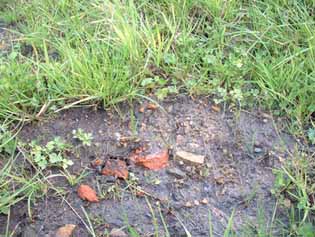Land Research - Case Study
Failing landscape scheme in Lancashire
Planning permission had been granted for the construction of 39 residential properties and the creation of public open space on 1.6 ha of adjacent land, with an obligation for the developer to construct the public open space in accordance with an approved landscaping plan. The plan required:
- Breaking up any deposited spoil to a depth of 150 mm, clearing the ground of any large debris brought to the surface and subsequently not travelling over it with any heavy machinery.
- Spreading BS3882 topsoil, seeding it with a mix of acid-loving upland grasses and planting clumps of specific tree species.
- Erecting fencing along the boundary of the public open space and extending a dry stone wall.
A year after the works were completed, the local planning authority refused to discharge the planning obligation claiming that the landscaping had not been delivered satisfactorily. LRA’s senior director was subsequently appointed by the council’s solicitors as a single joint expert, with instructions to determine whether the ground preparation and landscaping works had been satisfactorily carried out and, if not, recommend remedial works.
A detailed site investigation and laboratory soil analyses indicated that although the imported topsoil met the BS3882 specification, had been spread to the required depth and was in good structural condition, in places it contained introduced construction debris and also contained too many large stones. Topsoil pH was too high to successfully support the sown grassland species, but this was the result of imprecise specification, not site implementation.

A major defect was compaction of the underlying spoil, in some locations so compact as to prevent drainage of rainwater and deep rooting of the newly established vegetation. This was resulting in drowning of plant roots in winter, drought stress in summer and accounted for patchy establishment of the sown grasses and for poor establishment of the planted trees.
LRA was subsequently asked to prepare documents inviting tenders for remedial works (including ripping, stone-picking, replanting of trees and aftercare), and supervise the works when underway.
The inputs by LRA resulted in the legal dispute between the local planning authority and developer being successfully resolved.
Land Research Associates are experts in soil investigations for failing landscape schemes. If you need assistance with a similar problem phone us on +44 (0)1509 670570 or email mike.palmer@lra.co.uk.
